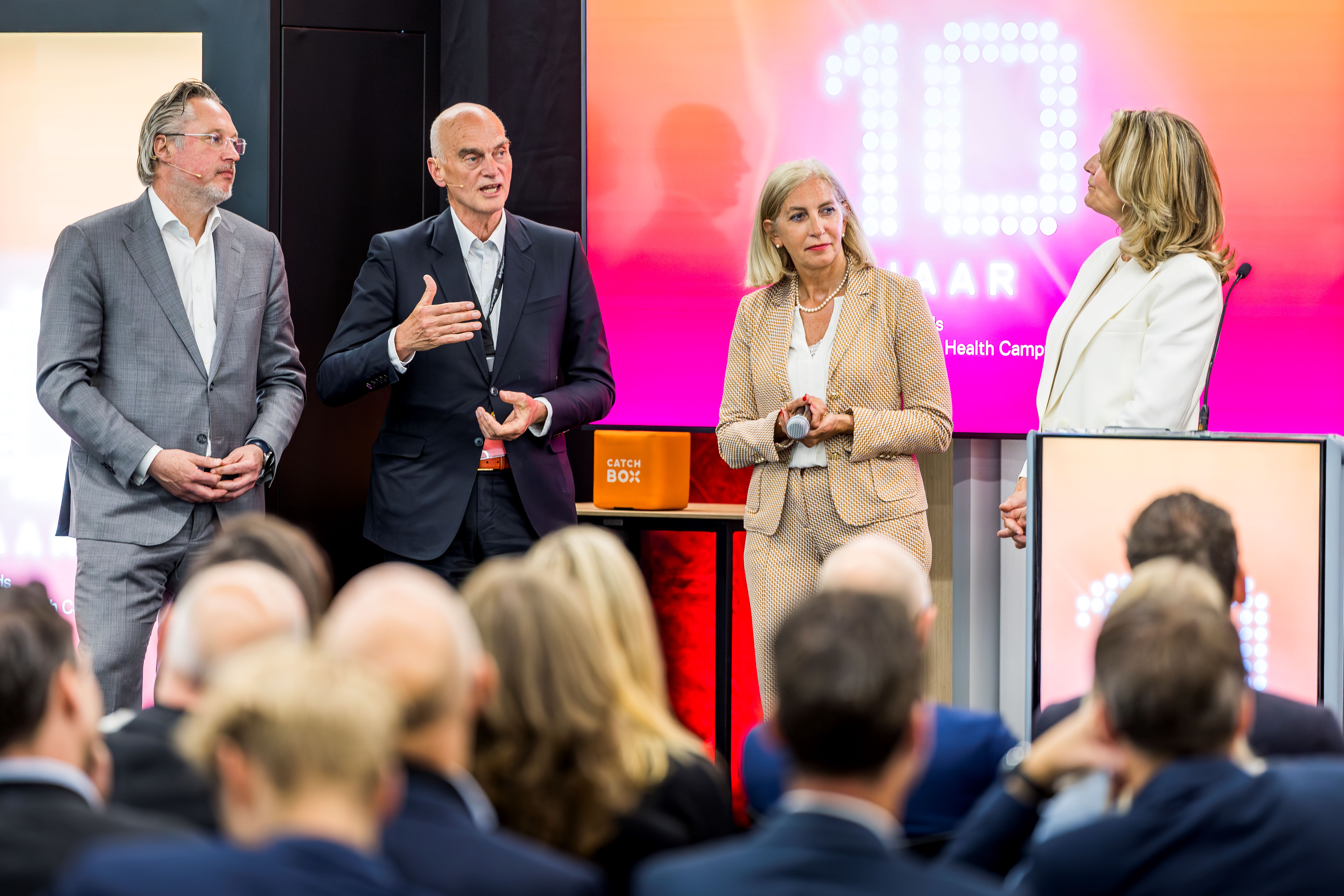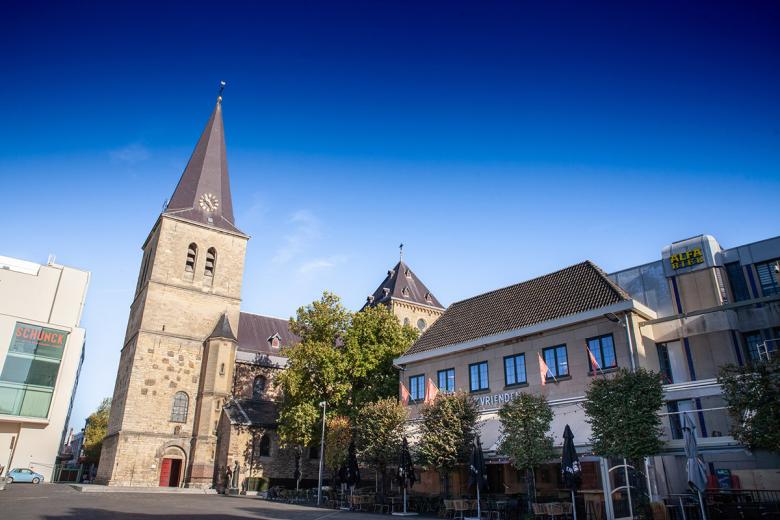Brightlands Maastricht Health Campus turns 10
The Brightlands Maastricht Health Campus celebrates its tenth anniversary this week. The campus now houses more than 115 companies and institutes where over 11,000 professionals and also over 11,000 students work together on valuable innovations within healthcare, medicine and life sciences.
In doing so, the Maastricht campus is achieving what it was set up for on 1 April 2013 by the Province of Limburg, Maastricht University and Maastricht UMC+: creating jobs in Limburg by valorising (bringing to market) knowledge.
In those ten years, Brightlands Maastricht Health Campus got the wind at the right times. From the first hamburger made of cultured meat - a world first - to the further development of MRI top institute Scannexus. And from housing De Maastricht Studie, the large-scale study into the health of the South Limburg population, to the arrival of two ambitious research institutes, Merln (regenerative medicine) and M4i (electron microscopy and mass spectrometry).
- Text continues below picture -

With all that, UM and Brightlands Maastricht Health Campus appear to be inextricably linked. Besides the faculties of Health, Medicine and Life Sciences and Psychology and Neurosciences, the Faculty of Science and Engineering (FSE) has also settled on the campus grounds. This latest UM faculty is a logical and important addition in a world where medical innovations increasingly go hand in hand with engineering and data sciences, for instance.
After ten years, there is a solid foundation that can be built on in the coming decades. As Nick Bos (UM Executive Board) put it during the anniversary meeting: "To attract and retain all that talent from home and abroad, the area needs more 'buzz'. With an extra incubator, good infrastructure and an attractive layout. It should be possible to realise this not in another ten years, but already in five."
For an interview with Jan Cobbenhagen, Brightlands Maastricht Health Campus, see the Brightlands newsletter.
Also read
-
Municipality of Heerlen, Parkstad Urban Region and UM invest 6 million in collaboration
Heerlen grants a one-time contribution of €1,478,050 to Maastricht University as part of the Regio Deal application ‘Fundament onder UM-onderwijs in Heerlen’ . This amount comes from the Fonds Economische Structuurversterking (FES) . The funding will help establish university education facilities in...
-

-
Brightlands Circular Space: A Highway to Circular Plastics
Reusing waste as a source for new materials appears to be an effective way to reduce the use of fossil-based sources in the production of materials such as plastic. However, how do you do this on a large industrial scale? In late November, Maastricht University and its partners TNO and Brightlands...